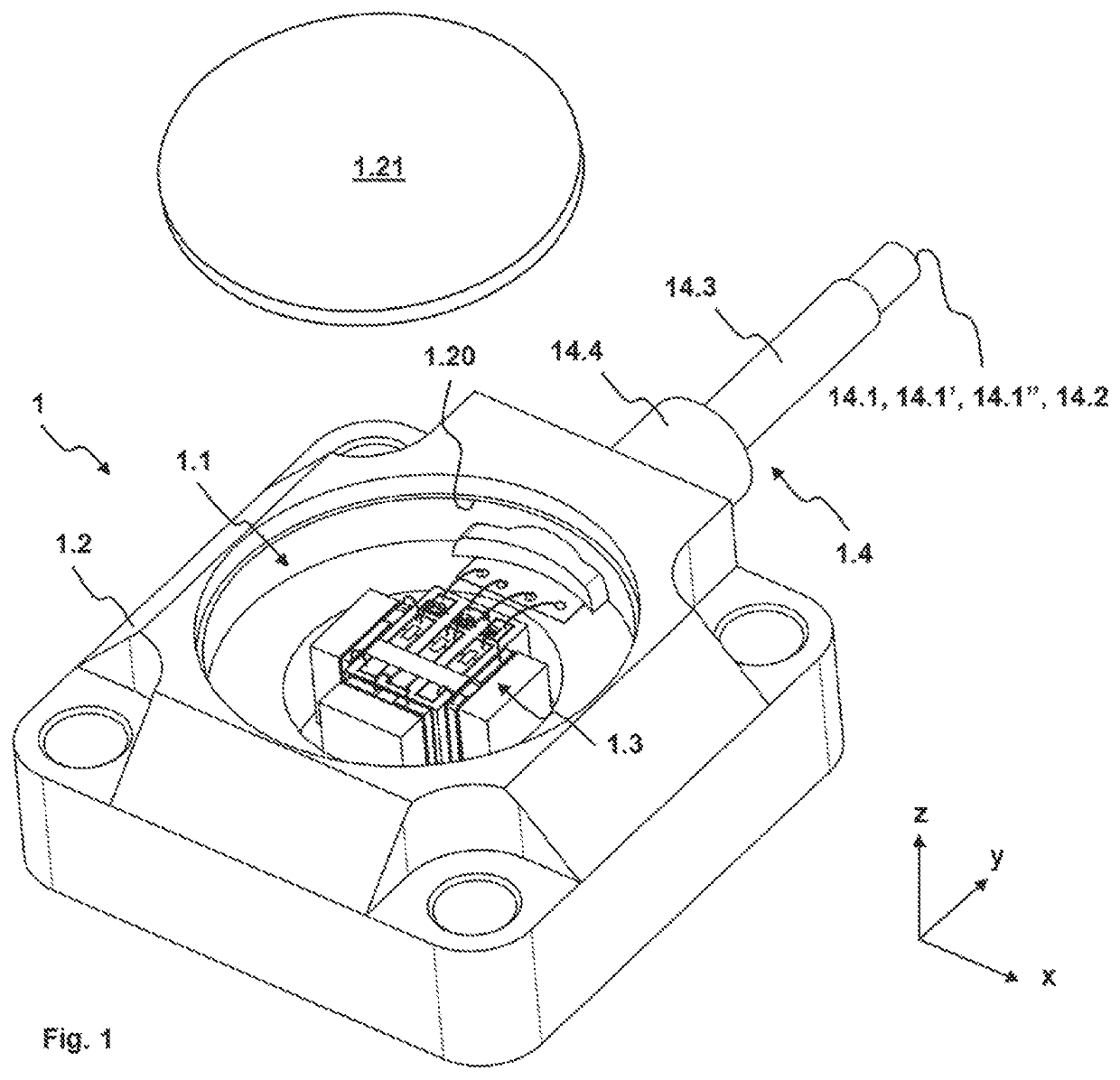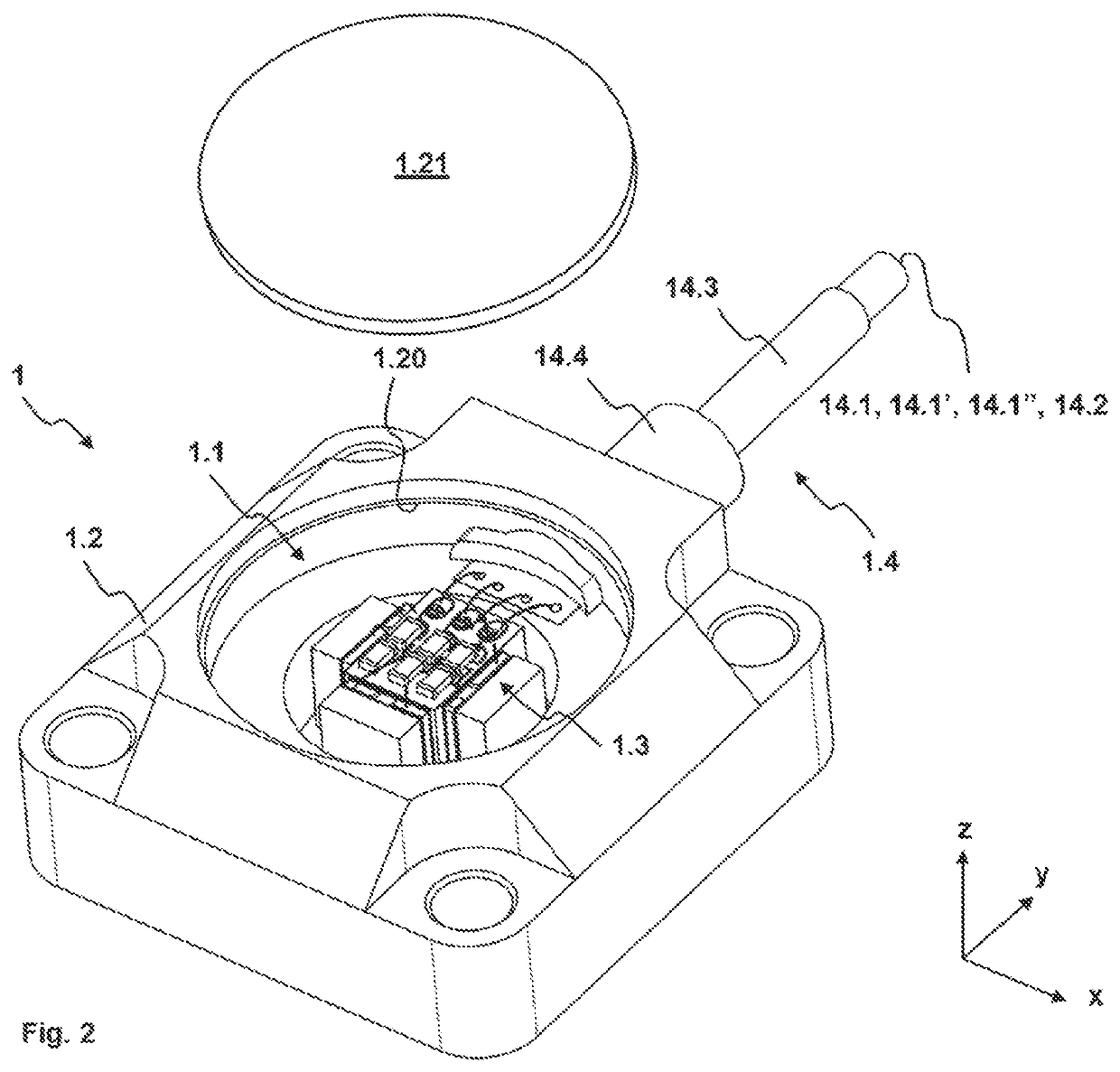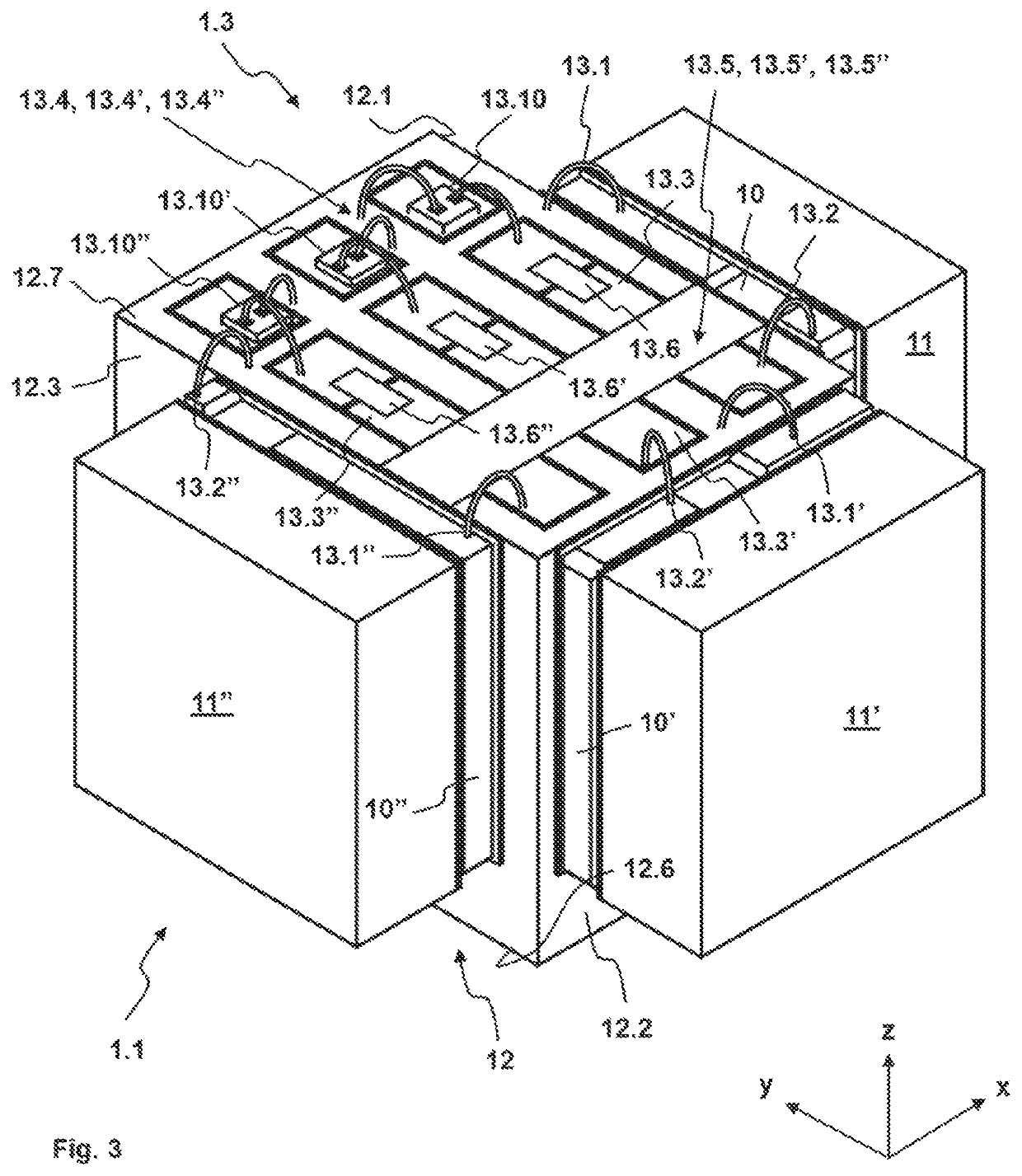Acceleration transducer
a transducer and acceleration technology, applied in the field of acceleration transducers, can solve the problems of inability to avoid, piezoelectric materials, limited space available for attaching the acceleration transducer to the physical object, etc., and achieve the effect of low weight and low cos
- Summary
- Abstract
- Description
- Claims
- Application Information
AI Technical Summary
Benefits of technology
Problems solved by technology
Method used
Image
Examples
first embodiment
[0069]Referring to FIGS. 7 and 8, according to a first, second or third piezoelectric element 10, 10′, 10″ the first end face 110 schematically shown in FIG. 7 comprises two first electrically conductive end face coatings 111, 111′ in some areas thereof and two first uncoated end face areas 112, 112′ in some areas thereof. Furthermore, the second end face 120 schematically shown in FIG. 8 comprises two more electrically conductive end face coatings 121, 121′, 121″ in some areas thereof. The first lateral surface 130 comprises a first electrically conductive lateral surface coating 131 in some areas thereof, another first electrically conductive lateral surface coating 133 in some areas thereof, and a plurality of uncoated first lateral surface areas 132, 132′, 132″, 132′″, 132″″ in some areas thereof. The second lateral surface 140 schematically shown in FIG. 8 comprises a second electrically conductive lateral surface coating 141 in some areas thereof and a second uncoated lateral ...
second embodiment
[0074]According to a first, second, or third piezoelectric element 10, 10′, 10″ as shown in FIGS. 9 and 10, the first end face 110 comprises a first electrically conductive end face coating 111 in some areas thereof and a plurality of first uncoated end face areas 112, 112′, 112″ in some areas thereof. Furthermore, the second end face 120 schematically shown in FIG. 10 comprises a plurality of second electrically conductive end face coatings 121, 121″, 121″ in some areas thereof and a second uncoated end face area 122 in some areas thereof. The first lateral surface 130 comprises a first electrically conductive lateral surface coating 131 in some areas thereof, two additional first electrically conductive lateral surface coatings 133, 133′ in some areas thereof, and a plurality of uncoated first lateral surface areas 132, 132′, 132″ in some areas thereof. The second lateral surface 140 comprises a second electrically conductive lateral surface coating 141 in some areas thereof and a...
PUM
 Login to View More
Login to View More Abstract
Description
Claims
Application Information
 Login to View More
Login to View More - R&D
- Intellectual Property
- Life Sciences
- Materials
- Tech Scout
- Unparalleled Data Quality
- Higher Quality Content
- 60% Fewer Hallucinations
Browse by: Latest US Patents, China's latest patents, Technical Efficacy Thesaurus, Application Domain, Technology Topic, Popular Technical Reports.
© 2025 PatSnap. All rights reserved.Legal|Privacy policy|Modern Slavery Act Transparency Statement|Sitemap|About US| Contact US: help@patsnap.com



